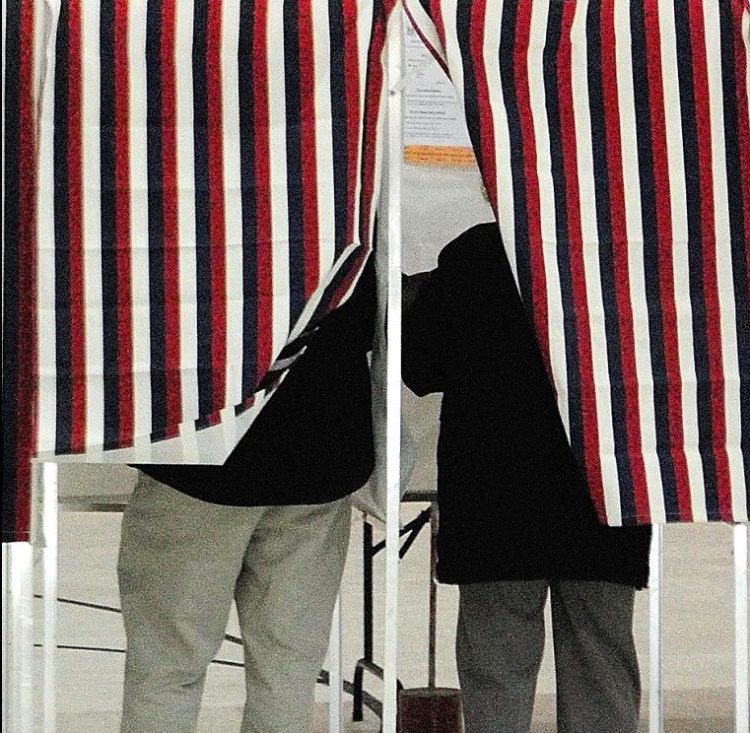Three months ago, ranked-choice voting looked dead in Maine.
The electoral reform that had been approved at referendum in 2016 was headed for oblivion when the Legislature and governor got together in a special session in October and overruled the people. They delayed its implementation until after the 2018 elections, and slated it to disappear if the next Legislature failed to send a constitutional amendment out for a vote.
But, through an extraordinary grass-roots effort, supporters of ranked-choice voting say they have been able to collect 70,300 validated signatures, more than enough to put a “people’s veto” on the ballot in June.
If those numbers hold up, the activists behind the effort will have accomplished three things.
• Voters would be able to reaffirm their support for the law that they passed and which the Legislature shot down.
• They would also get a chance to give the system a test drive, since the people’s veto puts the Legislature’s work on hold. At the same time they say “yes” or “no” on ranked-choice voting, they will also decide primaries with more than two candidates, like the 11-way Democratic gubernatorial contest, with ballots that let them rank their choices.
• And voters will be able to send a message about what they think of the much-maligned referendum process itself. Mainers unhappy with the way that Augusta has altered or outright dismissed a series of laws passed through citizen initiatives in recent years will have a chance to assert that they are also “lawmakers,” and under our constitution, have no less authority than elected officials to pass legislation.
When there are more than two candidates for a single office, voters in a ranked-choice election can express their preferences among the candidates who are not their favorite. It’s exactly what a voter would do in a runoff election if their first-choice candidate did not make it to the final round, which is why it’s also known as “instant-runoff voting.”
Ranked-choice voting affects how voters approach elections by eliminating the “spoiler factor.” Voters can support the person they like best, even if he or she is not likely to win, without giving up the ability to influence the race between the other contenders. It also may change the way candidates behave, by forcing them to reach out to a broader group of voters instead of focusing entirely on their base. There is reason to think that may make for a more civil debate.
Critics make two major arguments against this system. Neither holds up to scrutiny.
The first claim is that ranked-choice voting is unconstitutional in Maine, and the system’s opponents cite a 2017 advisory opinion from the Maine Supreme Judicial Court. The unanimous justices found that the state constitution calls for general elections for governor and Legislature to be decided by a plurality, so the system could not be used in those races.
But there is nothing unconstitutional about the idea itself, and the justices pointed out that it could be used in other races without running into trouble, like legislative, gubernatorial and congressional primaries or general election contests for Congress. The Legislature overreached by eliminating the whole law and not just the problematic parts. A much better remedy would have been to amend the Maine Constitution, as has been done more than 100 times in the past, including the time the word “plurality” was added.
The other claim is that ranked-choice voting is too confusing for Maine voters. It’s hard to understand why people who have won elections have so little regard for the people who elected them.
The system has been in place for two election cycles for mayoral elections in Portland and has worked without mass confusion. There is no reason to believe that the people who live in Maine’s biggest city are any smarter than the people who live in other places. Picking a second or third choice on a ballot is no more difficult than picking your second favorite flavor of ice cream when they are out of the kind you like best. Anybody who has ever voted for a losing candidate in a primary, and then showed up in November to vote for someone else, knows exactly how complicated this process really is.
There will be plenty of time to debate the finer points of ranked-choice voting between now and June, but this people’s veto is also a referendum on the referendum process itself.
Voters have approved bond issues, school funding targets, minimum-wage standards and expansion of health care benefits, only to see Gov. LePage and a number of lawmakers treat these measures as suggestions, not laws. These questions are often blunt instruments that need to be refined in Augusta before they go into effect. But, as with ranked-choice voting, the elected officials act is if they were dealing with a bill submitted by a single representative, and not a law that was approved by a majority of voters.
A defeat for ranked-choice voting in June would be an endorsement of the dismissive attitude elected officials have shown for the people who elected them. A victory would send a signal to whomever is in the State House next year that the people are ultimately in charge.
Send questions/comments to the editors.



Comments are no longer available on this story